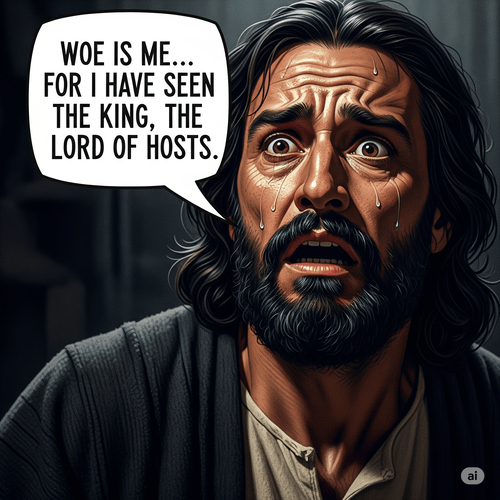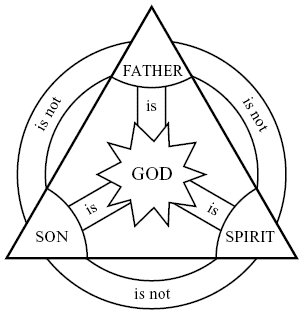Trinity: Impact of the Doctrine on Christian Life
Trinity: Impact of the Doctrine
The beautiful thing about the Trinity is that while God transcends our comprehension, He still invites us to an intimate relationship with Him…
The concept of the Trinity, while complex, has profound implications for how we live out our faith. Here’s how the doctrine of the Trinity can shape:
Trinity: Impact of the Doctrine on Our Understanding of the Nature of God:
- Three Persons, yet One God: The doctrine teaches us our one God exists in three distinct persons: God the Father, God the Son and God the Holy Spirit. The three persons are co-eternal, co-equal and co-substantial—meaning they share the same essence.
- Transcendent, yet Relational: The Trinity tests our willingness to acknowledge that God’s wisdom surpasses our finite minds. It challenges us to embrace divine truths even when they stretch our finite minds. Those who deny the Trinity often do so from a desire to simplify God or to fit Him into Human categories, rather than acknowledging His infinite complexity. The beautiful thing about the Trinity is that while God transcends our comprehension, He still yearns for us to enter into a relationship with Him.
Trinity: Impact of the Doctrine on Our Worship:
- A Relational God: The Trinity reveals a God who is inherently relational, existing in perfect love and fellowship between the Father, Son, and Holy Spirit. This informs our worship by emphasizing intimacy and communion with God. The doctrine also reminds us we must worship all three persons of the Trinity.
- Multifaceted Approach: Each person of the Trinity plays a distinct role in salvation. The Father’s love initiates the plan, the Son embodies God’s love through sacrifice, and the Holy Spirit convicts, regenerates, and empowers us. This understanding encourages a multifaceted approach to worship, incorporating elements of praise, reflection on Jesus’ sacrifice, and openness to the Holy Spirit’s leading.
Trinity: Impact of the Doctrine on Our Relationships with Others:
- The Model of Love: The Trinity presents the ultimate model of self-giving love within a community. The Father, Son, and Holy Spirit exist in perfect unity and selflessness. This inspires us to cultivate love, forgiveness, and unity in our relationships with others.
- Value of Community: The Trinity emphasizes the importance of community. Just as God exists as three persons in perfect fellowship, we are called to build strong, supportive communities that reflect God’s love.
Trinity: Impact of the Doctrine on Our Sharing of the Gospel Message:
- The Heart of the Message: The Trinity is at the heart of the Christian gospel. Salvation comes through God’s love (the Father), Jesus’ sacrifice (the Son), and the Holy Spirit’s transformative work. Understanding the Trinity allows us to share the gospel message with greater depth and clarity.
- Mystery and Majesty: The Trinity acknowledges the mystery of God while also affirming God’s majesty and power. This balance is important when presenting the gospel. We can share the truth of God’s love and plan for salvation while acknowledging the limitations of human understanding regarding the divine nature.
Related Reads:
Editor’s Pick

Was Jesus Abandoned by the Father on the Cross?
WHY WE ANSWER IN THE NEGATIVE “My God, my God, why have you forsaken me?” These words from the cross [...]

Why Do Some Respond to God’s Call While Others Don’t?
THE REFORMED VIEW ON OUTWARD AND INWARD CALLS EXPLAINED Picture this: Two neighbours attend the same church service. They hear [...]

Does Ocean Salt Content Prove a Young Earth?
A COMPELLING LOOK AT MARINE CHEMISTRY AND EARTH’S TIMELINE The Salt Question That Challenges Deep Time: If Earth’s oceans have [...]
Noah’s Flood: Where Did All the Water Come From? And Go?
The question hits every Bible-believing Christian at some point: “If Noah’s flood covered the whole earth, where did all that [...]

No Marriage in Heaven? What Does Mark 12:25 Mean?
“Will I see my spouse in heaven? Will we still be married?” These questions pierce the heart of every Christian [...]

The Terror of Meeting God: What Isaiah 6 Reveals About Divine Holiness
WHEN ‘WOE IS ME’ IS THE ONLY PROPER RESPONSE TO A GLIMPSE OF GOD Picture this: You’re a prophet of [...]

Is the Holy Spirit Present in Unbelievers? The Biblical Answer
Can someone who doesn’t believe in Jesus Christ have the Holy Spirit living inside them? This question strikes at the [...]

The Gap Theory Exposed: Why Embrace a Young Earth?
The Gap Theory proposes there’s a vast time gap—millions or billions of years—between Genesis 1:1 (“In the beginning God created [...]

Rethinking Sickle Cell Anaemia: A Case for Intelligent Design
Sickle cell anaemia presents what many consider evolution’s strongest card—a genetic condition that causes suffering yet provides protection against malaria. [...]

‘Bad’ Design: Flaw in Nature Or Flaw in Our Perspective?
When the Eiffel Tower was first proposed, critics called it a monstrous eyesore that would ruin Paris forever. Today, it’s [...]






